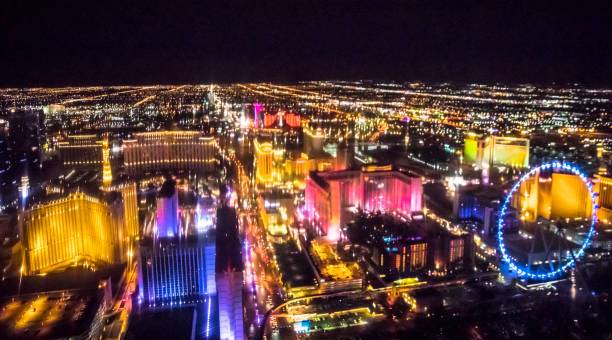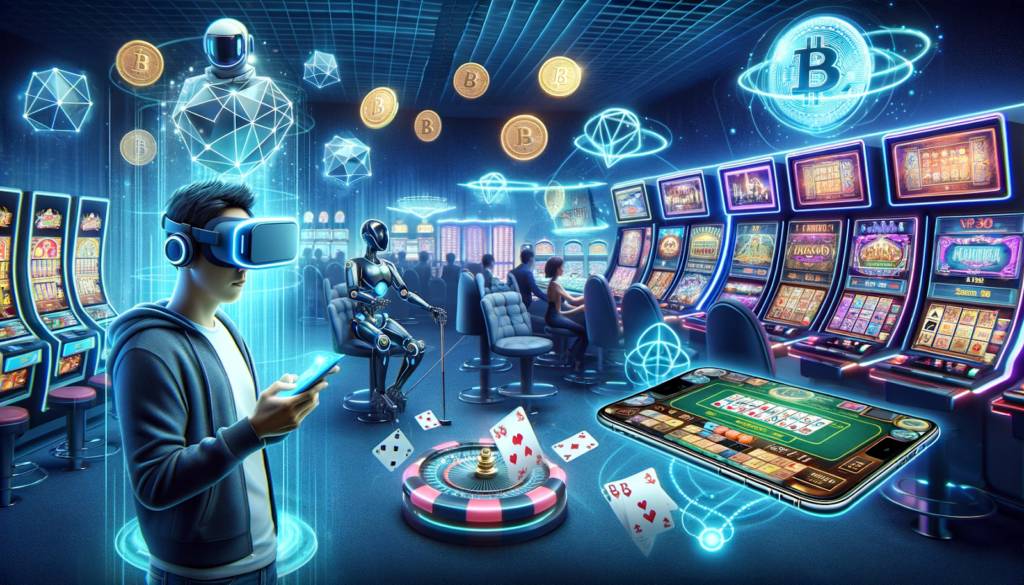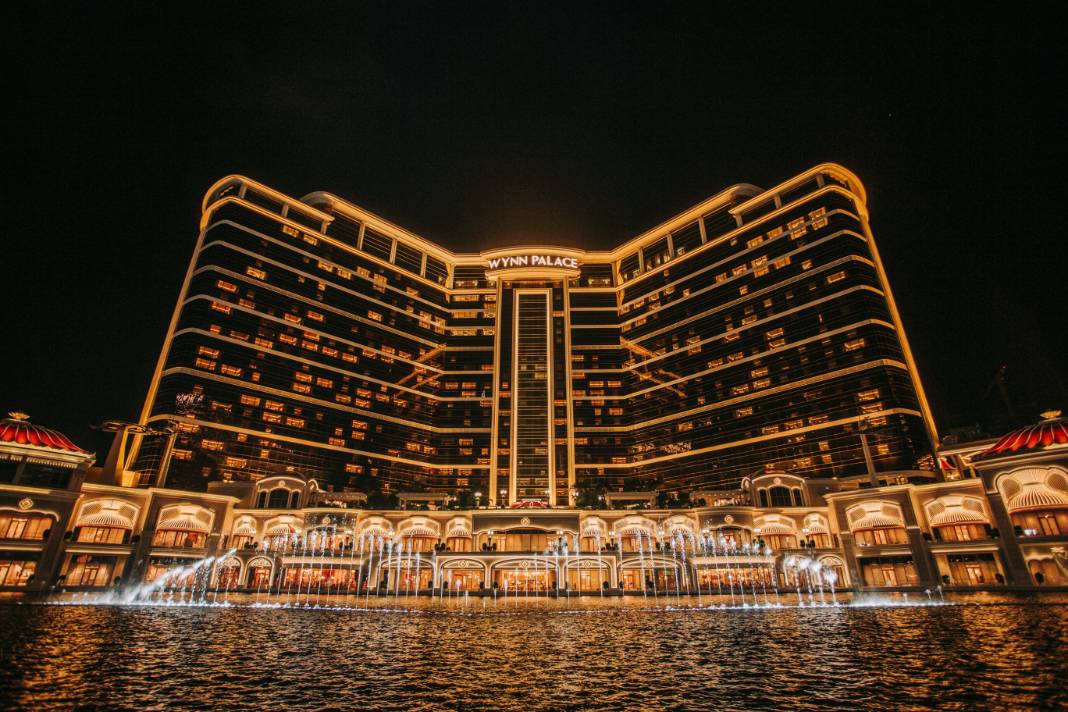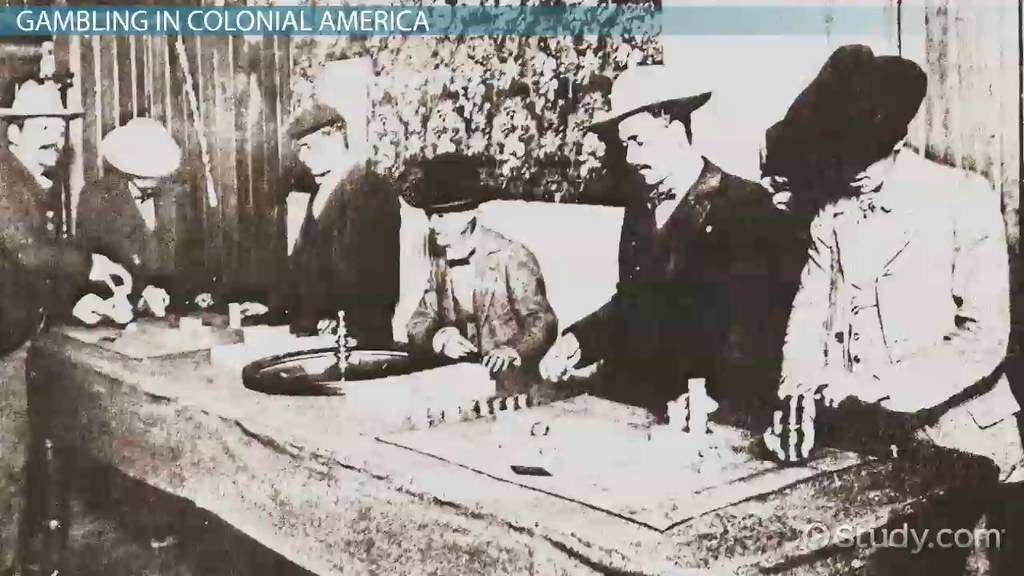
Casino resorts around the world are more than just gambling venues—they are carefully crafted destinations that combine luxury, entertainment, and opulence. For high rollers, affluent travelers, and those seeking unforgettable experiences, these resorts provide a world-class environment where indulgence and excitement coexist seamlessly. Beyond the gaming tables, every aspect of the resort is designed to impress, from lavish accommodations and gourmet dining to entertainment and personalized services. These resorts offer not just a place to play, but a lifestyle experience for those who expect nothing less than the extraordinary.***Opulent AccommodationsThe hallmark of the world’s most expensive casino resorts is their extraordinary accommodations. Guests can stay in penthouse suites with panoramic city or ocean views, expansive villas with private pools, or themed luxury rooms that showcase the height of craftsmanship. Every suite is furnished with the finest materials, including imported marble, silk draperies, and hand-carved furniture. Many resorts offer private butlers who provide around-the-clock personalized service, ensuring that every need is anticipated and met with discretion. High-end amenities such as private gyms, spa treatments, and bespoke mini-bars enhance the experience, creating a sanctuary where guests can relax in comfort and style.In addition, many resorts integrate smart technology into their accommodations. From automated lighting and climate control to voice-activated entertainment systems, technology enhances convenience and ensures a seamless stay. The combination of aesthetics, comfort, and advanced amenities is designed to make guests feel both pampered and empowered, creating an unforgettable first impression upon arrival.***High-Stakes Gaming and VIP RoomsHigh rollers seek experiences beyond standard casino tables, and luxury resorts cater to this demand with high-limit games and private VIP rooms. These rooms are often secluded from the main casino floor to provide discretion and privacy for elite players. Games such as baccarat, blackjack, roulette, and poker are available at significantly higher stakes than in standard areas. Some resorts even offer customized gaming tables with unique rules or elevated payout structures designed to appeal to VIPs.In these exclusive environments, VIP hosts manage every detail of a guest’s gaming experience, ensuring comfort, discretion, and personal attention. They may arrange private gaming tournaments, organize high-stakes competitions, and provide tailored incentives to keep players engaged. These VIP rooms are not just about gambling—they are spaces where high rollers can socialize, network, and enjoy the thrill of the game in a luxurious, private setting.***World-Class Dining ExperiencesFine dining is an integral part of the appeal of expensive casino resorts. Many resorts feature Michelin-starred chefs who create gourmet menus combining international flavors with local ingredients. Guests can enjoy multi-course meals, tasting menus, and bespoke culinary experiences tailored to individual preferences. Exclusive wine selections, rare spirits, and mixology experiences elevate the dining experience even further.Beyond formal dining, luxury resorts often offer casual yet upscale options such as rooftop restaurants, private beachside dining, and intimate lounges. Culinary experiences are designed to be memorable, complementing the overall resort atmosphere and ensuring that guests are fully immersed in the luxury lifestyle. Some resorts even provide chef’s table experiences or cooking classes for VIP guests, adding a personal and interactive touch to the gastronomic offerings.***Entertainment and Cultural ExperiencesLuxury casino resorts go beyond gaming and dining by offering a wide array of entertainment and cultural experiences. Guests can enjoy live performances by world-renowned musicians, Broadway-style shows, or exclusive art exhibitions. Resorts often host celebrity appearances, fashion events, and private parties designed specifically for high rollers. For those seeking relaxation, high-end spa treatments, yoga classes, and wellness programs are available in serene environments.Some resorts integrate cultural experiences, such as guided tours of local landmarks, curated art collections, or immersive workshops in traditional crafts. By blending entertainment, culture, and luxury, these resorts ensure that every moment of a guest’s stay is engaging, enriching, and unforgettable.***Personalized VIP ServicesOne of the most significant draws for high rollers is the personalized VIP service offered by luxury casino resorts. Dedicated VIP hosts manage reservations, plan itineraries, and ensure that guests’ preferences are known and fulfilled. This can include arranging private check-ins, limousine and helicopter transfers, personal shopping experiences, and even exclusive excursions. The goal is to provide a seamless, stress-free experience where the guest feels valued and respected.Additionally, these services often extend to gaming incentives, such as complimentary chips, exclusive tournament invitations, or cash-back rewards. By tailoring experiences to the individual, resorts create an emotional connection with their most valuable patrons, fostering loyalty and encouraging repeat visits. High rollers are not just guests—they are partners in the luxury experience.***Architectural Splendor and Interior DesignLuxury casino resorts invest heavily in architectural design and interior aesthetics to create awe-inspiring environments. Grand lobbies, chandeliers, water features, and intricate flooring designs set the tone for opulence from the moment a guest enters. The design of gaming areas, dining spaces, and suites is carefully planned to create a harmonious flow while maintaining visual impact.Many resorts incorporate themed elements, such as ancient civilizations, exotic landscapes, or modern futuristic concepts, enhancing the immersive experience. Outdoor spaces, including pools, gardens, and terraces, are equally lavish, often featuring panoramic views and private seating areas. Every aspect of design is intended to impress, reinforce luxury branding, and enhance the overall guest experience.***Exclusive Amenities and ExperiencesBeyond accommodations, dining, and gaming, luxury casino resorts offer a wide range of exclusive amenities. Private beaches, yacht charters, golf courses, and helicopter tours allow guests to enjoy experiences that extend beyond the resort walls. Concierge services can arrange rare or once-in-a-lifetime experiences, such as attending global events, booking VIP access to concerts, or organizing private shopping sprees.For high rollers, these amenities are part of a lifestyle package that complements the thrill of gambling. Resorts also provide wellness services such as personal trainers, spa retreats, and mental wellness programs to ensure that guests are rejuvenated and fully prepared for high-stakes gaming.***Security and PrivacySecurity and privacy are crucial for ultra-wealthy guests. Luxury resorts implement advanced security measures, including surveillance systems, biometric access controls, and discreet security personnel. Private suites and VIP rooms often feature enhanced privacy measures to ensure that guests can enjoy their stay without interruptions. This level of security reassures high rollers that their personal safety and privacy are prioritized, further enhancing their comfort and trust in the resort.***ConclusionThe world’s most expensive casino resorts combine indulgence, thrill, and personalized service to create an unparalleled experience for high rollers and affluent travelers. From opulent accommodations and high-stakes gaming to world-class dining, entertainment, and bespoke VIP services, these resorts redefine luxury hospitality. Architectural splendor, exclusive amenities, and state-of-the-art security further ensure that guests feel safe, pampered, and inspired. Every element of the resort is meticulously designed to create a lifestyle experience, making each visit unforgettable and ensuring that these resorts remain the pinnacle of luxury casino entertainment. For those seeking the ultimate blend of excitement and extravagance, these casino resorts stand as the definitive benchmark for opulent experiences.By understanding the meticulous attention to detail, personalized services, and immersive experiences offered at these luxury resorts, readers can appreciate why they are not just destinations but statements of lifestyle. Every aspect—from gaming tables to private beaches—works in harmony to provide a world-class experience that continues to attract high rollers from across the globe, setting a standard unmatched by ordinary casinos.
By Abraham Benjamin · 13 Oct 2025

Modern casinos rely heavily on technology to ensure the safety and security of both their guests and assets. With millions of dollars changing hands daily and high-profile clientele frequenting these venues, security is paramount. Advanced systems and innovative solutions help casinos prevent fraud, monitor gaming areas, and maintain a safe environment for all patrons. The integration of technology has transformed casino security from a reactive approach to a proactive and intelligent system.***Surveillance Systems and AI MonitoringCasinos use state-of-the-art surveillance systems, often referred to as the "eye in the sky," to monitor every corner of the property. High-definition cameras, coupled with AI-powered monitoring, can detect suspicious behavior, track patterns, and alert security personnel in real time. AI algorithms can identify anomalies, such as unusual betting patterns or repeated attempts at cheating, allowing security teams to intervene before incidents escalate. This technology significantly reduces human error and increases the efficiency of surveillance operations.***Access Control and Biometric AuthenticationModern casinos employ advanced access control systems to restrict entry to sensitive areas such as cash rooms, high-limit gaming tables, and employee-only zones. Biometric authentication, including fingerprint and facial recognition, ensures that only authorized personnel can access these areas. This not only prevents internal theft but also streamlines employee verification processes. By combining physical security with biometric technology, casinos maintain a secure environment without disrupting guest experiences.***Cybersecurity MeasuresWith the rise of online gambling and digital payment methods, cybersecurity has become a critical component of modern casino security. Casinos protect sensitive data, such as customer financial information and gaming records, through encrypted networks and multi-layered firewalls. Regular security audits, intrusion detection systems, and continuous monitoring help prevent cyberattacks. Protecting both digital and physical assets ensures that casinos maintain trust and integrity among their patrons.***Fraud Detection and Gaming AnalyticsTechnology enables casinos to track and analyze gaming patterns to detect potential fraud. Advanced software can monitor card games, roulette, and slot machines to identify irregularities or cheating attempts. By analyzing large volumes of data, casinos can predict suspicious behavior and act proactively. This reduces losses and maintains a fair playing environment for all guests, reinforcing the credibility of the casino.***Emergency Response SystemsModern casinos also incorporate technology to enhance emergency preparedness. Advanced communication networks, alarm systems, and real-time monitoring ensure quick responses to fires, medical emergencies, or security breaches. Some casinos integrate AI-driven crowd management systems to guide guests safely during evacuations. By combining technology with trained personnel, casinos can respond efficiently to emergencies, minimizing risk and ensuring guest safety.***ConclusionTechnology plays a vital role in the modern casino industry by providing comprehensive security solutions that protect assets, prevent fraud, and ensure guest safety. From AI-powered surveillance and biometric access controls to cybersecurity measures and gaming analytics, these innovations allow casinos to maintain secure and fair environments. As technology continues to advance, casinos will increasingly rely on intelligent systems to enhance both safety and the overall guest experience.
By Stefen · 12 Oct 2025

Luxury casinos are not just gambling hubs—they are carefully designed experiences aimed at attracting high rollers, or players who bet large sums of money. From opulent interiors to exclusive perks, these establishments know that creating an atmosphere of prestige and comfort is key to drawing elite clientele. Understanding how luxury casinos appeal to high rollers reveals the subtle strategies that keep them engaged and loyal.***Opulent Interiors and Exclusive AmbianceHigh-end casinos invest heavily in their décor and ambiance. Crystal chandeliers, plush carpets, elegant furniture, and ambient lighting create a sense of exclusivity. VIP rooms and private gaming areas ensure that high rollers feel a level of privacy and comfort unmatched in standard casino floors. Every detail, from the scent to the music, is carefully curated to enhance the luxurious experience and make players feel special.***Personalized Services and AttentionLuxury casinos offer a range of personalized services to attract and retain high rollers. Private hosts or VIP managers cater to every need, from arranging special accommodations to providing instant access to tables. Personalized attention creates a sense of importance and loyalty. High rollers often enjoy dedicated concierge services, complimentary meals, and luxury transportation, all designed to enhance their gaming experience and make them feel valued.***Exclusive Rewards and IncentivesHigh rollers are drawn to casinos that provide exclusive rewards. These include cashback offers, high-stakes bonuses, free hotel stays, and invitations to elite events. Loyalty programs are often tiered, offering increasingly luxurious perks as players continue to wager. Such incentives not only encourage large bets but also reinforce a sense of privilege and recognition.***High-Stakes Gaming OptionsLuxury casinos provide games with higher betting limits to appeal to high rollers. Private poker rooms, exclusive roulette tables, and high-limit slot machines give players the thrill they seek without interruption. The higher the stakes, the more excitement and prestige the experience provides. Casinos design these games to be both challenging and rewarding, ensuring that elite players feel the value of their investment.***Privacy and Security MeasuresPrivacy is crucial for high rollers, many of whom are public figures or wealthy individuals. Luxury casinos implement discreet security, private entrances, and confidential service protocols. This ensures that players can enjoy their experience without concern for their safety or privacy. Security is not just physical—it also includes digital protections for online or mobile casino activities.***Entertainment Beyond GamingHigh rollers often expect more than just gambling. Luxury casinos host world-class entertainment, gourmet dining, and premium spa services. Exclusive concerts, fashion shows, and celebrity appearances add to the allure. By offering a full lifestyle experience, casinos keep high rollers engaged and provide more reasons for them to spend extended time—and money—on the property.***ConclusionAttracting high rollers requires more than offering games—it involves creating a complete luxury experience. From opulent interiors and personalized services to exclusive rewards, privacy, and top-tier entertainment, luxury casinos design every element to appeal to elite players. Understanding these strategies highlights how high-end casinos maintain their status, ensuring that high rollers return for the thrill, the comfort, and the prestige that only a luxury gaming environment can provide.
By Robert Anthony Brown · 11 Oct 2025

Las Vegas has long been synonymous with casinos, entertainment, and nightlife, earning its reputation as the world’s casino capital. Despite the rise of online gambling and the growth of international gaming hubs, Las Vegas continues to attract millions of visitors each year. Its enduring appeal lies in a combination of historical significance, innovative offerings, and the unique atmosphere that only this city can provide.***A Rich History of GamblingThe origins of Las Vegas as a gambling mecca date back to the early 20th century. With the legalization of casino gambling in the 1930s, the city quickly became a hotspot for entertainment and tourism. Legendary casinos and hotels established the city as a must-visit destination, attracting high rollers, celebrities, and curious travelers. This historical foundation laid the groundwork for its global reputation.***World-Class Entertainment and AmenitiesLas Vegas offers more than just gambling; it provides a complete entertainment experience. Visitors enjoy world-class shows, concerts, fine dining, luxury resorts, and shopping. The integration of casinos with diverse amenities creates an immersive experience that appeals to a wide audience, ensuring that the city remains relevant even as online gaming grows in popularity.***Innovation and Adaptation in GamingLas Vegas casinos continuously innovate to maintain their competitive edge. From introducing new game variations to incorporating technology like mobile betting and interactive experiences, the city adapts to changing player preferences. High-stakes tournaments, themed casinos, and immersive gaming environments keep the experience fresh and exciting for both seasoned gamblers and newcomers.***Tourism Infrastructure and AccessibilityThe city’s infrastructure supports millions of visitors, with world-class airports, hotels, and transportation systems. Las Vegas is easily accessible from major cities worldwide, making it a convenient destination for international tourists. The city’s ability to handle large-scale events and accommodate diverse audiences reinforces its position as the leading casino hub.***Cultural Icon and Global BrandingLas Vegas has become a cultural icon, frequently featured in movies, television, and popular media. Its branding as a glamorous, vibrant, and high-energy city contributes to its lasting allure. The global recognition of Las Vegas reinforces its status as the go-to destination for gambling and entertainment, creating a sense of prestige and excitement around visiting the city.***ConclusionLas Vegas remains the world’s casino capital due to its rich history, world-class entertainment, innovative gaming, robust infrastructure, and iconic cultural status. While online gambling and international destinations continue to grow, the city’s unique combination of experiences, accessibility, and global reputation ensures that it retains its crown as the ultimate gambling and entertainment hub. For those seeking the quintessential casino adventure, Las Vegas continues to offer an unparalleled experience.
By John Michael Smith · 10 Oct 2025

Casinos have undergone a remarkable transformation over the decades, evolving from grand, opulent halls to accessible online platforms. This evolution reflects changes in technology, player behavior, and the global entertainment landscape. From the luxurious brick-and-mortar establishments of the past to modern digital gaming environments, casinos continue to captivate audiences worldwide.***The Era of Classic Casino HallsClassic casinos, often located in iconic destinations like Las Vegas, Monte Carlo, and Macau, were designed to offer a luxurious and immersive gambling experience. These halls featured elegant décor, live dealers, and a variety of table games including blackjack, roulette, and poker. Social interaction, ambiance, and the thrill of the physical environment were key aspects of the experience, attracting high rollers and casual players alike.***Introduction of Electronic GamingThe rise of electronic gaming machines marked the first major shift in casino operations. Slot machines and electronic roulette brought faster gameplay and increased accessibility. Players could enjoy games at their own pace without waiting for a live dealer. The integration of technology allowed casinos to monitor player behavior, optimize game offerings, and enhance security, setting the stage for the digital revolution.***The Advent of Online CasinosWith the proliferation of the internet, casinos expanded into the online space. Online platforms provided convenience, accessibility, and a wider variety of games than traditional halls. Players could gamble from anywhere, at any time, and access features like virtual roulette, blackjack, poker, and progressive jackpots. Online casinos also introduced bonuses, loyalty programs, and interactive features that enhanced user engagement.***Live Dealer Games and Hybrid ExperiencesTo recreate the atmosphere of classic casinos, online platforms introduced live dealer games. These games stream real dealers in real-time, allowing players to interact and experience the thrill of a physical casino from their devices. Hybrid experiences, combining virtual and real elements, bridge the gap between traditional and digital gambling, offering a more immersive and social gaming environment.***Mobile Gaming and On-the-Go AccessThe rise of smartphones and mobile apps further transformed the industry. Players can now access online casinos on the go, placing bets, spinning wheels, and joining live tables from anywhere. Mobile gaming has expanded the audience, attracting younger generations and casual players who seek convenience and flexibility. The portability of mobile platforms ensures that gambling is no longer tied to specific locations.***Technological Innovations Shaping the FutureEmerging technologies like virtual reality (VR), augmented reality (AR), and artificial intelligence (AI) are poised to redefine the casino experience. VR casinos provide fully immersive environments, while AI-powered tools offer personalized recommendations and predictive analytics. Blockchain technology enhances transparency and security, ensuring fair play. These innovations continue to push the boundaries of what modern casinos can offer.***ConclusionFrom opulent casino halls to sophisticated online platforms, the evolution of casinos reflects technological advancement, changing player preferences, and the quest for immersive experiences. While the charm of classic halls remains unmatched, digital and mobile platforms provide unparalleled convenience and innovation. As technology continues to advance, the future of casinos promises even more exciting, accessible, and interactive ways for players to engage with the world of gambling.
By Christopher David Wilson · 09 Oct 2025

Casinos in the United States have grown from small entertainment venues into powerful engines of economic activity. By 2025, the casino industry has become an essential part of many state economies, driving job creation, tourism, tax revenues, and local development. While opinions on gambling vary, there is no denying that casinos play a major role in shaping the economic landscape of the U.S.***Job Creation and Employment OpportunitiesOne of the most direct economic benefits of casinos is employment. From dealers, waitstaff, and hotel managers to entertainers and security personnel, casinos employ tens of thousands of people across the country. In states like Nevada and New Jersey, casinos are among the largest private employers, offering steady jobs with competitive salaries. By 2025, the expansion of online and tribal casinos has also created opportunities in technology, marketing, and digital operations, broadening the scope of employment.***Boosting State Tax RevenuesCasinos generate billions in tax revenue for U.S. states every year. These funds are often directed toward public services such as education, infrastructure, and healthcare. For example, states like Pennsylvania and Michigan have used casino tax revenue to strengthen public school funding, while Nevada reinvests heavily into tourism promotion. In 2025, as more states legalize online gambling, digital casinos are becoming another important source of tax income, further fueling state budgets.***Tourism and Hospitality GrowthCasinos act as magnets for tourism, drawing visitors from around the world. Las Vegas remains the prime example, with millions of tourists visiting each year not only to gamble but also to enjoy concerts, dining, shopping, and nightlife. Atlantic City, Connecticut’s Mohegan Sun, and tribal casinos across the Midwest and Southwest have all transformed their regions into tourist hubs. By 2025, casinos have expanded beyond gaming to include luxury resorts, spas, and entertainment venues, making them multi-dimensional tourism drivers.***Local Business DevelopmentThe economic impact of casinos extends beyond the casino floor. Local restaurants, shops, and service providers often benefit from increased traffic generated by casino visitors. Construction companies, suppliers, and event planners are also tied to casino growth. In many states, casinos serve as anchors for broader economic development, encouraging investments in transportation, real estate, and hospitality.***The Role of Tribal CasinosTribal casinos have become especially influential in the U.S. economy. Since the passage of the Indian Gaming Regulatory Act in 1988, tribal casinos have provided economic empowerment to Native American communities. By 2025, many tribes operate large-scale casino resorts that generate billions in revenue, funding healthcare, housing, and education for tribal members. These casinos not only create jobs within Native communities but also contribute significantly to surrounding state economies.***Online Gambling and the Digital ShiftThe legalization of online gambling has added a new dimension to the casino economy. States like New Jersey, Pennsylvania, and Michigan have embraced digital platforms, creating new revenue streams. Online casinos provide jobs in technology, customer service, and software development, while also appealing to younger, tech-savvy players. By 2025, the digital casino market is estimated to be a multi-billion-dollar industry, complementing traditional land-based casinos rather than replacing them.***Challenges and Social CostsWhile casinos bring undeniable economic benefits, they also raise concerns. Critics point to issues like problem gambling, economic dependence on tourism, and increased competition that can hurt small businesses. Some regions worry about the volatility of casino revenue, particularly when economic downturns or global events affect tourism. States are increasingly investing in responsible gambling programs and regulatory measures to balance economic gains with social responsibility.***Regional Differences in ImpactThe economic impact of casinos varies significantly by state. In Nevada, the industry is central to the economy, accounting for a massive share of state revenues and employment. In contrast, states like Massachusetts or Ohio treat casinos as supplementary industries that support tourism and entertainment. Tribal casinos, meanwhile, serve as both community lifelines and regional economic engines. By 2025, the growth of casinos in states like Arkansas, Virginia, and Illinois has shown that even smaller markets can benefit significantly.***The Future OutlookLooking ahead, casinos in the U.S. are likely to expand further into digital spaces, luxury tourism, and integrated resort development. States that embrace innovation will continue to reap significant economic rewards. However, balancing economic growth with social responsibility will remain critical. As casinos adapt to new technology and changing demographics, their role in the U.S. economy will only become more complex and significant.***ConclusionThe economic impact of casinos on U.S. states is both vast and multifaceted. They provide jobs, generate tax revenue, fuel tourism, and support local businesses. Tribal casinos bring empowerment to Native communities, while online platforms are creating entirely new markets. Despite challenges and debates, casinos remain one of the most dynamic contributors to state economies. By 2025, their influence is undeniable, shaping not just the gaming industry but the broader economic fabric of the United States.
By Rahul Sharma · 08 Oct 2025

Casino tourism has become one of the defining features of the United States’ hospitality and entertainment industry. Travelers from across the globe flock to iconic destinations such as Las Vegas, Atlantic City, and Native American casinos, not only for gambling but also for the world-class resorts, luxury dining, high-profile entertainment, and cultural experiences that surround them. In 2025, casino tourism stands as a symbol of America’s ability to merge gaming, leisure, and spectacle into one unforgettable adventure.***Las Vegas: The World’s Casino CapitalNo discussion of casino tourism is complete without Las Vegas. Known as the “Entertainment Capital of the World,” Vegas attracts millions of international visitors each year who come for its legendary Strip. Beyond the casinos themselves, Las Vegas offers extravagant stage shows, celebrity-chef restaurants, luxury shopping, and nightlife that lasts until dawn. In 2025, the city continues to expand with high-tech gaming floors, esports arenas, and immersive digital attractions, ensuring its place as the ultimate casino destination for global travelers.***Atlantic City: The East Coast RivalAtlantic City, often called the “Vegas of the East,” has carved out its own niche in casino tourism. Visitors from Europe, Canada, and South America come to experience its iconic Boardwalk, oceanfront resorts, and gaming culture. While smaller than Las Vegas, Atlantic City’s appeal lies in its blend of seaside relaxation and casino excitement. In 2025, major resorts like Borgata and Hard Rock are enhancing their luxury offerings to attract an even wider international audience.***Native American Casinos and Cultural TourismBeyond the big-name destinations, Native American casinos across the country—from Connecticut’s Mohegan Sun and Foxwoods to Oklahoma’s WinStar World Casino—play a crucial role in attracting both domestic and international visitors. These resorts combine massive gaming floors with cultural showcases, fine dining, concerts, and sporting events. Many tourists are drawn not just for gambling but also for the chance to experience Native American hospitality and traditions, adding a cultural dimension to their trip.***Luxury Resorts as Tourist MagnetsModern casino tourism goes far beyond slot machines and blackjack tables. Resorts like The Venetian, Bellagio, Wynn, and Resorts World have transformed into luxury hubs where gaming is only one part of the appeal. Guests come for spa retreats, rooftop pools, designer boutiques, and fine art exhibitions. These properties function as full-service destinations where international visitors can enjoy both relaxation and thrill, ensuring their global appeal remains strong in 2025.***Entertainment as a Driving ForceEntertainment is one of the most powerful draws for casino tourists. International travelers often plan trips around headline concerts, residencies, and shows featuring global superstars. From Cirque du Soleil in Las Vegas to live performances at Mohegan Sun, casinos have become cultural venues as much as gaming hubs. In 2025, advanced stage technology and interactive shows are making these experiences more immersive, reinforcing casinos as must-visit destinations.***Economic Impact of Casino TourismCasino tourism is more than just leisure—it’s a major contributor to the U.S. economy. Millions of visitors bring billions of dollars in revenue through gaming, hotels, dining, shopping, and entertainment. Entire cities, like Las Vegas and Atlantic City, rely heavily on casino tourism to thrive, while Native American communities use revenue to fund education, healthcare, and cultural preservation. International tourism also ensures a steady flow of foreign investment into the U.S. hospitality sector.***Emerging Casino DestinationsWhile Las Vegas and Atlantic City dominate, new casino hubs are emerging across the United States. States such as Florida, Mississippi, and Oklahoma are attracting increasing numbers of international tourists through large-scale resorts. Tribal casinos in the Midwest and West are also expanding their global reach, offering experiences that combine gaming with unique cultural and regional flavors.***The Role of Technology in Casino TourismBy 2025, technology plays a huge role in shaping the casino tourism experience. Cashless gaming, virtual reality attractions, AI-driven concierge services, and hybrid online-offline gaming platforms are all part of the modern casino resort. These innovations appeal to younger international travelers who value seamless digital experiences alongside traditional gaming excitement.***ConclusionCasino tourism in the United States has grown into a global phenomenon, attracting millions of international visitors every year. From the bright lights of Las Vegas to the cultural richness of Native American resorts and the coastal charm of Atlantic City, America’s casinos offer more than gambling—they offer full-scale luxury, entertainment, and cultural immersion. In 2025, with innovation and expansion leading the way, U.S. casino tourism continues to set the global standard for gaming and hospitality.
By Anita Singh · 07 Oct 2025

Casinos in the United States have always been about glitz, glamour, and the thrill of winning. But in 2025, the industry is no longer just about slot machines and table games. U.S. casinos are undergoing a technological revolution, using innovation to transform the way guests play, stay, and experience entertainment. From artificial intelligence to immersive virtual reality, technology is changing the casino floor in ways that promise more excitement, convenience, and personalization than ever before.***Artificial Intelligence and PersonalizationAI is at the heart of the modern casino experience. In 2025, casinos use advanced AI to tailor services to each guest. From recommending games based on playing habits to adjusting hotel packages and dining options, personalization has become the norm. AI-driven chatbots now handle reservations and queries in real time, ensuring a smoother guest experience. The technology also helps casinos track trends, manage security, and even predict potential high rollers.***Cashless Gaming and Digital WalletsOne of the most significant shifts in U.S. casinos is the move toward cashless gaming. By integrating digital wallets and mobile payment systems, casinos are making transactions faster, safer, and more convenient. Players can now load credits onto their accounts via apps, use QR codes to join games, and track their spending in real time. This innovation not only improves efficiency but also appeals to a younger, tech-savvy generation of gamblers who prefer digital solutions over traditional cash.***Virtual Reality and Immersive GamingVirtual reality (VR) is adding a new dimension to casino entertainment. Some U.S. casinos are experimenting with VR gaming lounges where guests can enjoy fully immersive casino experiences that go beyond the traditional slot machine. Imagine putting on a VR headset and walking into a virtual Las Vegas where you can interact with other players, explore themed environments, and compete in tournaments—all from one headset. This blend of gaming and digital immersion is set to grow even more in the coming years.***Smart Casino Floors and IoT IntegrationThe casino floor of the future is smart and interconnected. Internet of Things (IoT) devices track everything from machine performance to guest preferences. Slot machines can now communicate directly with casino systems, allowing instant updates on payouts, maintenance needs, and player usage. This real-time data helps operators ensure a seamless gaming experience while also providing valuable insights into customer behavior.***Robotics and Automated ServicesIn 2025, robots are no longer a novelty—they are part of the casino ecosystem. From robotic bartenders mixing custom cocktails to automated service bots delivering food to hotel rooms, automation has streamlined many aspects of the hospitality experience. These innovations free up human staff to focus on high-level guest interactions, while also reducing wait times and improving service efficiency.***Augmented Reality and Interactive EntertainmentAugmented reality (AR) is beginning to play a role in how casinos entertain their guests. Imagine pointing your phone at a slot machine and seeing bonus rounds or promotions pop up in 3D. AR-enhanced shows and performances are also on the rise, offering audiences experiences that blend the digital with the physical world. Casinos are using AR not just for games, but also for marketing and guest engagement.***Enhanced Security and Facial RecognitionSecurity has always been a top priority for casinos, and in 2025, technology has taken it to the next level. Facial recognition systems identify VIP guests instantly, allowing staff to deliver personalized service. At the same time, these systems detect banned individuals or suspicious behavior, helping casinos maintain a safe environment. AI-powered surveillance further strengthens monitoring, ensuring fairness and security across the gaming floor.***Green Technology and SustainabilityInnovation in U.S. casinos is not just about entertainment—it’s also about responsibility. Many resorts have adopted eco-friendly technologies such as smart lighting, water recycling, and energy-efficient gaming machines. Digital ticketing and paperless operations further reduce waste, aligning with broader sustainability goals. These innovations not only cut costs but also appeal to environmentally conscious travelers.***The Rise of Online and Hybrid CasinosWhile land-based casinos remain the centerpiece of U.S. gaming, online platforms have grown rapidly. By 2025, hybrid models are emerging where players can enjoy live dealer games streamed directly from physical casinos, blending the excitement of real-world gambling with the convenience of online access. Mobile apps now allow players to stay connected with their favorite casinos from anywhere, keeping loyalty strong even beyond the resort walls.***Looking Ahead: The Future of Casino InnovationThe pace of technological change shows no signs of slowing down. In the coming years, casinos are expected to push boundaries even further with blockchain integration, AI-driven predictive gaming, and fully immersive entertainment experiences. The casino of the future will not just be about winning or losing—it will be about creating personalized, seamless, and unforgettable experiences.***ConclusionU.S. casinos are embracing technology and innovation like never before. From AI personalization to VR adventures, from cashless transactions to sustainable practices, the industry is evolving to meet the needs of a new generation of players. These innovations ensure that casinos remain at the cutting edge of entertainment while staying true to their core promise: delivering thrills, luxury, and the possibility of life-changing wins.
By Rajat Sen · 06 Oct 2025

Online casinos have revolutionized the way Americans gamble, shifting the culture of gaming from brick-and-mortar establishments to digital platforms. Once confined to the glitz of Las Vegas or the boardwalks of Atlantic City, gambling is now accessible with just a smartphone or computer. This transformation has not only changed how people play but also how gambling is perceived in the United States, influencing entertainment, regulation, and society as a whole.***The Rise of Online Gambling in the U.S.While online gambling gained popularity worldwide in the late 1990s, the U.S. initially struggled with legal restrictions. Many Americans turned to offshore platforms to play poker, blackjack, and slots. Over time, however, states began to embrace online gambling as a legitimate industry. Today, states like New Jersey, Michigan, Pennsylvania, and Delaware have fully legalized online casinos, creating a regulated environment that has drawn millions of players and billions in revenue.***Convenience and AccessibilityOne of the biggest impacts of online casinos is accessibility. Players no longer need to book a trip to Las Vegas or Atlantic City—they can enjoy slots, poker, and roulette from their living rooms. Mobile apps have made it even easier, allowing people to gamble during commutes, breaks, or from the comfort of home. This shift has broadened the gambling audience, appealing not only to seasoned gamblers but also to casual players who may never have visited a physical casino.***Cultural Shifts in Gambling PerceptionThe convenience of online gambling has changed how Americans view the pastime. Once considered a glamorous or risky activity tied to big cities and casinos, gambling is now seen as a more casual form of entertainment. Online platforms often resemble video games, with interactive graphics, bonuses, and community features that make gambling feel less intimidating. This shift has blurred the line between traditional gaming and online gambling, embedding it deeper into everyday culture.***The Role of Online Poker and the "Poker Boom"A major milestone in online gambling culture came in the early 2000s with the rise of online poker. The 2003 World Series of Poker win by Chris Moneymaker, who qualified through an online tournament, sparked what became known as the “poker boom.” Thousands of Americans turned to online poker rooms, changing gambling from a niche hobby into a mainstream cultural phenomenon. Even after the federal crackdown in 2011, poker remains a cornerstone of U.S. online gambling culture.***Regulatory Challenges and Federal BattlesThe growth of online casinos in the U.S. has not been without hurdles. For years, federal laws like the Unlawful Internet Gambling Enforcement Act (UIGEA) of 2006 restricted banking transactions for online gaming. "Black Friday" in 2011, when the U.S. Department of Justice shut down major online poker sites, was a defining moment in the industry. However, the gradual legalization of online casinos at the state level has reshaped the landscape, creating regulated and safer markets for players.***Economic Impact and Revenue GrowthOnline casinos have become an economic powerhouse, generating billions in revenue for states. Taxes collected from online gambling fund public programs such as education, infrastructure, and healthcare. In states like New Jersey, online gambling revenues rival those of traditional casinos, proving that digital platforms are not only sustainable but essential to the modern gambling industry. This economic impact has convinced more states to consider legalization.***The Social and Psychological ImpactWhile online casinos offer entertainment and revenue, they also raise concerns about gambling addiction and accessibility. Unlike traditional casinos, where visiting requires effort, online platforms are always just a click away. This has sparked debates about responsible gambling measures. Many online casinos now integrate tools like self-exclusion, deposit limits, and reality checks to help players gamble responsibly while still enjoying the experience.***Integration with Sports Betting and Mobile AppsThe expansion of legalized sports betting in the U.S. has fueled the growth of online casinos. Many platforms now integrate casino games with sports betting apps, creating all-in-one entertainment hubs. This integration appeals to younger audiences and has redefined gambling as part of mainstream American leisure, combining sports fandom with casino-style thrills.***Cultural Representation in Media and Pop CultureOnline casinos have also left a mark on pop culture. Movies, TV shows, and streaming content often feature online poker and mobile gambling as part of modern lifestyles. Influencers and streamers showcase online slot sessions, blurring the line between gambling and entertainment media. This visibility has contributed to the normalization of gambling in everyday culture, making it a widely accepted activity.***The Future of Online Gambling in the U.S.Looking ahead, online casinos are set to expand even further as more states legalize digital gaming. Advancements in technology—such as virtual reality casinos, live dealer games, and blockchain-based gambling—will redefine the experience. As gambling continues to evolve, its cultural influence will deepen, making online casinos a permanent fixture of American entertainment.***ConclusionThe impact of online casinos on U.S. gambling culture has been profound. They have democratized access to gaming, reshaped public perception, generated billions in revenue, and introduced gambling into the digital age. While challenges remain in terms of regulation and responsible play, the convenience, accessibility, and cultural integration of online casinos ensure that they will continue to shape the American gambling experience for generations to come.
By James Carter · 05 Oct 2025

Native American casinos have become one of the most powerful and influential forces in the U.S. gambling industry. Once limited to Nevada and New Jersey, large-scale gaming is now spread across dozens of states thanks to the rise of tribal casinos. What started as small bingo halls in the late 20th century has transformed into a multi-billion-dollar enterprise that fuels local economies, empowers sovereign nations, and reshapes the American gaming landscape.***The Origins of Tribal GamingNative American gaming began modestly in the 1970s and 1980s, when tribes sought ways to generate revenue independent of federal and state governments. Early operations were often small bingo halls or card rooms. These ventures quickly became popular, sparking debates between state governments and tribes over the legality of such establishments. The push for recognition of tribal sovereignty became the foundation for the modern tribal casino industry.***The Indian Gaming Regulatory Act of 1988The turning point came in 1988 with the passage of the Indian Gaming Regulatory Act (IGRA). This landmark legislation granted federally recognized tribes the right to operate casinos on their lands, provided they reached agreements (compacts) with their state governments. The IGRA created a regulatory framework for Class I, Class II, and Class III gaming, with Class III covering full-scale casino gambling such as slot machines and table games. This law transformed tribal gaming into a legitimate and regulated industry.***The Growth of a Billion-Dollar IndustryFollowing IGRA, Native American casinos expanded rapidly. By the 1990s, tribal gaming revenues soared into the billions, rivaling commercial casinos in Las Vegas and Atlantic City. Today, more than 500 tribal casinos operate in over 30 states, generating tens of billions of dollars annually. These revenues not only support tribal communities but also contribute significantly to state economies through revenue-sharing agreements.***Iconic Tribal CasinosSome of the largest and most successful casinos in the United States are tribal-owned. Foxwoods Resort Casino in Connecticut, one of the first mega-tribal casinos, once held the title of the world’s largest casino. Mohegan Sun, also in Connecticut, remains a global gaming and entertainment destination. On the West Coast, casinos such as Pechanga in California and Tulalip in Washington have become major hubs, attracting millions of visitors each year. These establishments rival, and in some cases surpass, the luxury and scale of Las Vegas resorts.***Economic Impact on Tribal CommunitiesThe revenue generated from Native American casinos has transformed tribal communities. Funds are often used to improve education, healthcare, infrastructure, and housing within reservations. For many tribes, casinos provide a pathway to financial independence, reducing reliance on federal aid. Jobs created by casinos also extend beyond tribal members, benefiting surrounding communities and boosting regional economies.***Legal Battles and ControversiesThe success of tribal casinos has not come without challenges. Legal battles over sovereignty, taxation, and state regulation have persisted for decades. Some critics argue that casinos create social problems such as gambling addiction, while others question whether all tribal members benefit equally from revenues. Despite these debates, courts have consistently upheld the right of tribes to operate casinos as sovereign nations.***Competition with Commercial CasinosAs tribal casinos grew, they began competing directly with commercial gaming hubs like Las Vegas and Atlantic City. In many states, tribal casinos are now the primary gambling destinations, attracting both locals and tourists. Their success forced commercial operators to innovate, leading to the rise of mega-resorts, luxury amenities, and integrated entertainment complexes. In this way, tribal casinos reshaped the entire U.S. gaming industry.***The Role of Online and Sports BettingIn recent years, tribal casinos have begun exploring online gaming and sports betting. While laws vary by state, tribes are increasingly negotiating for the right to offer digital gambling platforms. This expansion represents the next frontier in tribal gaming, ensuring that Native American casinos remain competitive in an evolving industry.***Cultural Significance of Tribal GamingBeyond economics, tribal casinos carry cultural significance. They represent sovereignty, resilience, and self-determination for Native nations that have faced centuries of challenges. Tribal gaming is not just about profit—it is also about preserving heritage, funding cultural programs, and supporting the long-term survival of Native communities.***ConclusionNative American casinos are a billion-dollar industry that reshaped the U.S. gambling landscape. From modest bingo halls to massive resorts like Foxwoods and Mohegan Sun, tribal gaming has become a symbol of both economic power and cultural pride. While challenges remain, the industry continues to grow, proving that Native American casinos are not just about chance and entertainment, but about sovereignty, empowerment, and a lasting legacy within the United States.
By Samantha Lee · 04 Oct 2025

Casinos have long been a cornerstone of entertainment, risk, and reward in the United States. From riverboat gambling on the Mississippi to the dazzling lights of Las Vegas, the history of casinos in America is a fascinating tale of cultural evolution, legal battles, and economic impact. Each era shaped the industry differently, leaving behind a legacy that still influences how Americans gamble today.***Early Gambling in AmericaThe roots of American gambling date back to the 17th and 18th centuries when settlers brought European traditions to the New World. Lotteries were a common way to raise funds for public projects, while informal card games and betting activities spread across taverns and gatherings. By the early 19th century, gambling was a well-established pastime, though it carried both moral criticism and social acceptance depending on the region.***The Rise of Riverboat GamblingThe Mississippi River became a hub for gambling in the early 1800s. Riverboats carried wealthy travelers and traders who sought entertainment during long journeys. Poker, blackjack, and dice games were staples on these floating casinos. The rise of riverboat gambling contributed to the spread of casino culture in states like Louisiana and Mississippi, cementing gambling’s place in the American imagination.***The Wild West and Frontier GamblingBy the mid-19th century, gambling spread to frontier towns in the American West. Saloons in cities such as Deadwood, Dodge City, and San Francisco became famous for poker tables, roulette wheels, and card sharps. Gambling was a social centerpiece, but it was also notorious for attracting cheats, gunslingers, and law enforcement crackdowns. These Wild West saloons helped shape the enduring image of gambling as both risky and glamorous.***Las Vegas and the Legalization EraThe most transformative moment in U.S. casino history came in 1931 when Nevada legalized gambling. Las Vegas quickly became the epicenter of the American casino industry. Initially a small desert town, Las Vegas expanded rapidly with the help of mob investments, flashy hotels, and the introduction of neon-lit casino resorts. Games like blackjack, craps, and roulette dominated casino floors, while stage shows and luxury amenities attracted tourists from across the country.***The Influence of Organized CrimeDuring the mid-20th century, organized crime syndicates played a crucial role in shaping Las Vegas casinos. Mob bosses funded the construction of iconic casinos like The Flamingo, Sands, and Stardust. Their involvement added both glamour and controversy, as stories of skimming operations and underworld influence became part of Vegas lore. Eventually, federal crackdowns and corporate takeovers reduced mob influence, ushering in a new era of legitimacy.***Atlantic City Joins the SceneIn 1976, New Jersey legalized casino gambling in Atlantic City, making it the first U.S. city outside Nevada to host large-scale casinos. The opening of Resorts International in 1978 marked a new chapter in East Coast gaming. Atlantic City thrived as a tourist destination through the 1980s, though it later struggled with competition, economic decline, and the rise of other gambling markets. Still, it remains a key part of U.S. casino history.***The Tribal Casino BoomThe late 20th century saw another major shift with the rise of Native American casinos. Following the Indian Gaming Regulatory Act of 1988, tribal nations were able to operate casinos on sovereign land. This led to the establishment of successful casino enterprises like Foxwoods in Connecticut and Mohegan Sun. Tribal casinos revitalized local economies, created jobs, and established a new dimension in the U.S. gambling industry.***Modern Expansion Across the StatesToday, casinos exist in nearly every U.S. state, whether as commercial establishments or tribal operations. Riverboat casinos still operate in states like Louisiana and Illinois, while major hubs like Las Vegas and Atlantic City continue to attract millions of visitors each year. States such as Pennsylvania, Michigan, and Oklahoma have also emerged as major casino markets, proving that gambling has become a widespread American pastime.***The Online Casino RevolutionIn the 21st century, online casinos have added another layer to the history of gambling in the United States. While regulations vary by state, online poker, sports betting, and casino games are rapidly expanding. States like New Jersey, Michigan, and Pennsylvania lead the way in legal online gaming, offering players the convenience of gambling from home while preserving the excitement of traditional casinos.***Cultural Legacy of Casinos in the U.S.Casinos are more than just places to gamble—they are cultural landmarks that reflect the American spirit of risk, reward, and entertainment. They have influenced music, films, and television, becoming iconic backdrops for stories of fortune and fame. From Frank Sinatra’s performances in Las Vegas to Hollywood’s obsession with casino heists, the imagery of U.S. casinos continues to captivate the world.***ConclusionThe history of casinos in the United States is a story of evolution, resilience, and reinvention. From humble lotteries and riverboat poker tables to the neon paradise of Las Vegas and the digital frontier of online casinos, gambling has remained a defining feature of American culture. Casinos continue to represent both opportunity and entertainment, ensuring their place in U.S. history for generations to come.
By Rahul Sharma · 03 Oct 2025

When it comes to casino gaming in the United States, two destinations stand out above all others: Las Vegas, Nevada, and Atlantic City, New Jersey. Both cities have rich gambling histories, vibrant entertainment scenes, and iconic reputations as hubs for chance and fortune. But while they share similarities, they also offer very different experiences for visitors. Here’s how America’s two casino capitals compare side by side.***A tale of two originsLas Vegas rose from the desert in the early 20th century, fueled by legalized gambling in 1931 and the development of massive resorts along what became the Las Vegas Strip. Atlantic City’s gambling history began much later, in 1976, when New Jersey voters approved casino gaming to revitalize the struggling seaside town. The timing shaped each city’s identity: Vegas became the glitzy global capital of gambling, while Atlantic City evolved into an East Coast alternative.***Casino variety and scaleLas Vegas boasts over 140 casinos, with dozens lining the Strip in dazzling, resort-style complexes. These venues offer thousands of slot machines, endless table games, poker rooms, and high-limit VIP lounges. Atlantic City, by contrast, is more compact, featuring nine major casinos clustered along the famous Boardwalk and Marina District. While smaller, Atlantic City’s casinos still offer a robust selection, often with a more approachable, less overwhelming feel compared to Vegas’s mega-resorts.***Entertainment beyond gamblingVegas has built a reputation as an all-in-one entertainment capital. Visitors come not only to gamble but also to see world-class shows, dine at celebrity-chef restaurants, attend music residencies, and enjoy sprawling nightlife. Atlantic City has entertainment as well—concerts, comedy acts, festivals, and Boardwalk attractions—but it leans more toward regional visitors seeking a shorter, gambling-focused getaway rather than a multi-day luxury vacation.***Atmosphere and cultureLas Vegas thrives on extravagance. Neon lights, towering hotels, and themed resorts (from the Venetian canals to Paris’s Eiffel Tower replica) create a larger-than-life atmosphere. Atlantic City feels more grounded, with its oceanfront setting and historic Boardwalk offering a nostalgic charm. Vegas caters to international tourists and bachelor parties; Atlantic City often draws East Coast locals, weekenders, and loyal casino-goers.***Accessibility and travelLas Vegas is a global destination with McCarran International Airport (now Harry Reid International) connecting directly to cities worldwide. It thrives on tourism, conventions, and international visitors. Atlantic City, however, is most accessible to travelers from the Northeast Corridor—New York, Philadelphia, and Washington, D.C.—often arriving by car, bus, or short train ride. This makes Atlantic City more regional, while Las Vegas is distinctly international.***Gaming revenue and economicsLas Vegas consistently generates higher gaming revenues, often exceeding billions of dollars annually thanks to its massive casino infrastructure and global tourist base. Atlantic City, while profitable, has faced ups and downs, particularly during competition from neighboring states’ casinos. Still, its importance to New Jersey’s economy is significant, and it remains one of the largest gambling destinations in the U.S. outside Nevada.***Sports betting and new trendsSince the legalization of sports betting in 2018, both cities have embraced sportsbooks. Las Vegas, already long associated with sports wagering, remains a leader with high-tech betting lounges. Atlantic City has also capitalized, with sportsbooks integrated into its casinos, supported by New Jersey’s booming online betting market. In fact, New Jersey often surpasses Nevada in monthly sports betting handle, showing how the East Coast hub has become a powerhouse in the digital betting age.***Tourist demographicsVegas attracts a mix of international visitors, high-rollers, and casual tourists seeking bucket-list experiences. Atlantic City skews more regional, with many visitors making day trips or weekend stays. While Vegas has become a destination for global travelers, Atlantic City maintains a loyal customer base, particularly among East Coast gamblers who prefer a convenient escape without cross-country flights.***Challenges facedBoth cities have had to navigate challenges. Las Vegas has reinvented itself multiple times, moving from mob-run gambling dens to corporate resorts, and more recently pivoting to become a sports capital with NFL, NHL, and Formula 1 events. Atlantic City has struggled with casino closures, economic downturns, and competition from nearby states. Yet, both continue to adapt and remain central to America’s gambling identity.***Which one is right for you?If you’re looking for over-the-top luxury, iconic shows, and the full global gambling experience, Las Vegas is unmatched. If you prefer a smaller, more nostalgic casino atmosphere with the charm of an oceanfront boardwalk, Atlantic City might be your pick. Many gamblers and travelers enjoy both, appreciating their unique identities.***ConclusionLas Vegas and Atlantic City are both pillars of America’s casino culture, but they shine in different ways. Vegas dazzles with scale, spectacle, and international appeal, while Atlantic City offers regional charm, accessibility, and historic boardwalk fun. Together, they represent two sides of the same coin—the thrill of casino life, whether in the desert or by the sea.
By Anita Singh · 02 Oct 2025